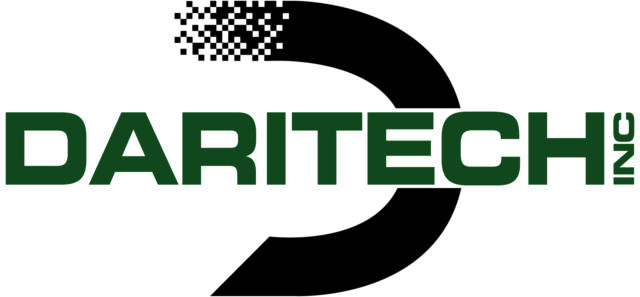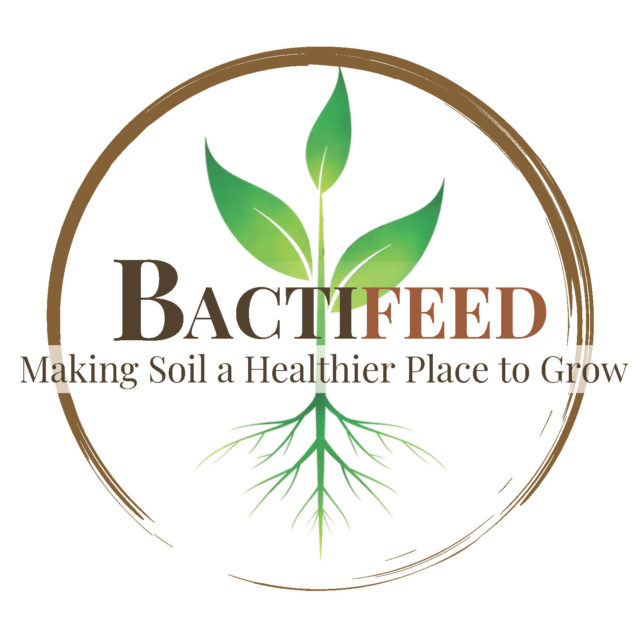It began just over 10 years ago as a way for local dairyman John Reitsma to deal with an excess of manure and nutrients his herd was producing. With its humble beginning in Jerome, Idaho, Magic Valley Compost has grown to become one of the largest composting companies in the nation. In 2004, the original company was bought out by a group of agriculture businessmen operating as Healthy Earth Enterprises, LLC. Its operations now work with sixteen dairies contributing to 39 compost yards throughout the Magic Valley in south-central Idaho.
While their size and growth might seem the most impressive part of the organization, Tony Brand, general manager, will tell you otherwise. For Tony, it all comes down to what they are able to do for dairymen in the area, the landowners and farmers who use their products and the environment that benefits from the compost they are creating.
Tony says, “I feel that many of the issues we are dealing with in manure management can be effectively dealt with through composting. The composting process effectively deals with nitrogen, phosphorus and other possible contaminants to the soil when compared to directly applying manure. We can help a lot of the problems we see today with the use of compost on fields.
“One of the biggest problems is water. Compost helps with both infiltration and water retention in the soil. With water becoming a more important resource, it is critical to get the water where the plants need it and then hold it there for crops to use. Compost is one of the only amendments that can do it efficiently and effectively. In addition, compost helps build the soil so plants can extract both nutrients and water at a much more efficient rate. It creates a better growing media for higher production rates.”
Because of the variety of dairies Magic Valley Compost deals with, they have had to work through some different challenges in creating a working environment that effectively deals with these conditions. Tony states, “Whatever manure is generated from an operation, we can work with it. We are able to work with dry lots, flush systems or a combination of the two. Although we are working with different starting mediums, the arid area we work in makes it possible to get good results with a variety of manures and byproducts. There is the risk that during a long, hot summer we might need to add some water to the windrows to make sure they are curing correctly, but we generally are able to take any situation and create a consistent, reliable end product.”
Once the composting process is completed, Magic Valley Compost turns the final products back over to the operations they have worked with. The dairies are then able to use it as they would like. Tony puts those relationships this way, “We have different arrangements with different companies. We come in and do the composting, and the final products are theirs to deal with. They can use it for bedding, on their own fields or, if they want help marketing it, we can help find customers or create final-use products for them to market.”
For Tony, composting and its benefits have become an important part of how he looks at life. His working relationships have grown into a passion to help people understand the benefits and importance of composting. He adds, “I really enjoy the good people I have met and continue to work with every day. The people I work with are conscious of what they want and what they are doing to the environment. One of the biggest challenges is helping people understand the importance of compost and how it really can change the way they work with their fields and the environment in a good way.”
In addition, Tony says, “Compost is such a natural, wonderful soil amendment. It is putting back into the soil what is needed. When you compost properly, you create the organic matter that is needed to improve the soil. When you compare it with adding manure back into the soil directly, there are just too many benefits to not consider composting.”
While Tony can make the process of composting seem easy, he also emphasizes there is a learning curve to fully understand the process. “If someone is looking at starting into composting, I suggest looking at any resource they can get ahold of. I would suggest starting with the Cornell website (www.cwmi.css.cornell.edu/) as a good place to start researching to see if this type of operation can work for you. In my opinion, you can’t learn too much about this process and how it will affect your operation. To be successful, you need to have a full understanding of what you are wanting to do and what it will take to get you there.”
He also cautions, “When you look at starting composting, make sure you have a decent piece of land to work on. One of the challenges we have faced with some of the operations we work with is they aren’t very willing to take a decent piece of land to develop the windrows on. A good, solid base is necessary to work the windrows. I would also tell people to avoid areas where there are lots of rocks. Rocks are the enemy to the machinery and the final product you offer back to consumers and dairymen alike.”
As the animal husbandry industry continues to come under pressure to find beneficial ways to work with the byproducts it produces, Magic Valley Compost considers itself to be a leader in taking these challenges head-on. They are seen throughout the Magic Valley as a valuable asset to the dairy industry by helping them address environmental issues while creating a product that can be used directly by the dairymen or a value-added commodity to the farms they service.
Tony sums it up this way, “Over the last three years, Magic Valley Compost has been able to greatly increase the number of dairies working with compost. We have also been able to educate the local population, both dairymen and landowners, to the value of composting and how it can benefit them in the long run.” ANM





